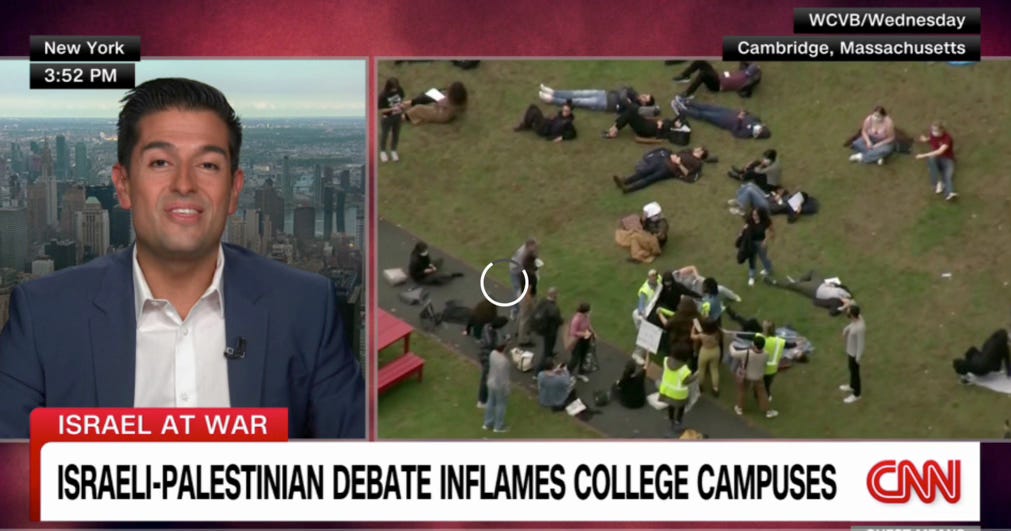Donor Influence and Moral Hazard
Billionnaires who "pull their donations" from universities? It's not new, but it's rotting higher education to the core.
I worked for over two decades in university advancement. I started as a major gifts officer at my alma mater, moved on to lead regional major gift teams in my 30s, and directed major university strategic initiatives in my 40s. I loved my work, and feel that I represented my institutions well. And now, as an entrepreneur and founder of my own fundraising consulting practice, I am able to reflect on current donor behavior with the benefit of objectivity from the outside rather than as a shrapnel-absorbing insider.
What do I mean by that?
Well, Universities used to be bastions of intellectual pursuit, free from the sway of external interests. Professors earned tenure as a way to protect the integrity of their research and opinions. But something happened over the last 25 years, namely that the financial model of universities became hyper-reliant on two streams of revenue: federally guaranteed student loans, and major donor-driven philanthropy.
I won’t wax poetic on the absurdity of subsidizing tuition from the bottom up (rather than pricing tuition as either a function of total income). I’ve railed on the “pay what you weigh” model for my whole career.
But what has happened in higher education, especially at elite institutions, has lead to a distortion of priorities, policies, and has me questioning even the very basic value of higher education.
At the heart of this issue lies the disproportionate influence wielded by a concentrated minority of affluent individuals. These wealthy donors, often alumni or business leaders in finance or tech, have amassed extraordinary financial clout and are aggressively cultivated to make substantial contributions to their alma mater. While philanthropy in education is not inherently negative, the problem arises when these donations come with strings attached.
In my career, I’ve lost countless gifts when I’ve politely refused to help a prospective donor’s son or daughter secure an internship or introduction to an alumni leader, or coordinate a private meeting with a key faculty member to discuss potential investment in his or her new company…and it’s always the “prospective donor”, never the actual donor, who has tried to use wealth as a tool of personal or progeny advancement...
To that end, I’ve noticed a distinct trend: Fewer and fewer donations are given out of sheer altruism, and instead become as a means to advance some philosophical, political, or personal agenda. Whether funding for specific research projects, the establishment of endowed chairs, or the construction of new facilities, these donations often come with implicit expectations. And when universities become dependent on such largesse, they compromise their legitimacy, not to mention their academic integrity and independence.
One of the most glaring manifestations of this phenomenon is the growing trend of donor influence on university policies and priorities. Wealthy donors, through their sizable contributions, sway decisions on everything from admissions criteria to curriculum development. This influence can result in the privileging of certain disciplines or viewpoints over others, undermining the academic diversity and intellectual rigor that universities should strive to uphold.
Witnessing the Ivy+ cohort bend themselves into pretzels trying to smooth over Palestinian protests is the most public manifestation, and major philanthropists (if you can call them that) have pulled their support as a result.
But this is not new. The reliance on wealthy donors has violently shifted the focus of universities towards initiatives that appeal to donors, rather than initiatives based purely on merit or potential academic excellence. The focus on donor preference and donor-centrism has eroded the core values of academia. It perpetuates inequality by prioritizing the interests of wealthy benefactors over those of the broader community. Some universities have adopted ideologies or values that align with the preferences of their major donors and stifle contrary inquiry and exploration.
Hey, at least legacy admissions are being targeted as patently unfair. But rest assured, they’re still being practiced, aggressively.
To address these challenges, I wish that Universities could reassess their reliance on wealthy donors, adapt their financial model, and find a way to reaffirm their commitment to academic independence. This may require diversifying revenue streams, implementing fully transparent donation policies, and strengthening governance mechanisms to safeguard against undue donor influence.
Franky, we should eliminate of the tax deduction for donations to any university whose endowment exceeds $1M per enrolled undergraduate.
Ultimately, the financial model of universities should serve the interests of the academic community and society at large. But more and more they’re beholden to the agendas of a preposterously wealthy few.
I hope that at some point, they can reclaim their autonomy, shore up their integrity, and return to their mission: advancing knowledge, fostering critical thinking, and serving as beacons of intellectual excellence for future generations.




